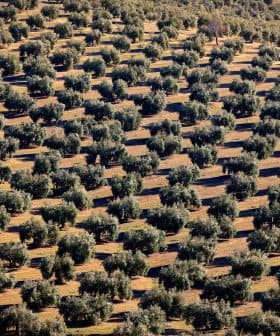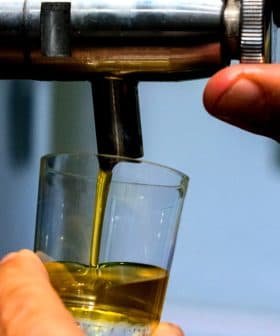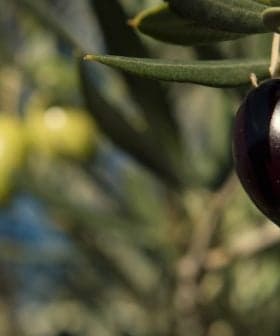Tunisia Plans to Expand Olive Oil Exports to South Korea

Tunisia aims to increase olive oil exports to South Korea by participating in the Korea Import Fair and promoting the country’s agricultural produce, with a focus on expanding individually-packaged exports to capture a larger market share in Asia. Despite South Korea’s growing appetite for olive oil, the country primarily imports from Italy, Spain, and the United States, but Tunisian producers are optimistic about eventually establishing a presence in the Korean market by showcasing the high quality of their products through various exhibitions and events.
Tunisia is set to increase its olive oil exports to South Korea, according to exporters who hope to expand Tunisia’s share of olive oil into the Asian Pacific country.
At the Korea Import Fair, held from June 29th to July 1st in Seoul, the Tunisian Export Promotion Center, in collaboration with the Tunisian embassy based in South Korea, exhibited a large selection of Tunisian agri-food products.
According to Boughedir Ahmed, an official from the Tunisian embassy at the event, the aim was to promote Tunisia’s agricultural produce and diversify its exports into Asia.
See Also:Tunisian Officials See Bright Future for Local Olive Oil IndustryAccording to the Observatory of Economic Complexity, Tunisia exported $690 million (€583 million*) worth of olive oil in 2021 (the last year for which data are available), making it one of the world’s leading olive oil exporters.
Due to its proximity to Europe, most of its agricultural exports travel north across the Mediterranean Sea. Similarly, most of Tunisia’s imports come from Europe.
However, in the past 26 years, Tunisia’s exports to South Korea have increased at an annual rate of 8.8 percent, rising to an export value of $87.8 million (€74.3 million) in 2021.
Tunisia’s biggest exports to South Korea in 2021 were scrap copper ($16.4 million/€13.9 million), crustaceans ($9.2 million/€7.8 million) and plastic products ($7.59 million/€6.42 million). South Korea’s top exports to Tunisia in 2021 were rail transport ($72.7 million/€61.5 million) and cars ($66 million/€55.8 million).
Boughedir Ahmed said the food fair allowed Tunisian producers to market their olive oil products while identifying reliable trading partners.
“We have olive oil, which is already famous in the market, but we are not satisfied with the quantity sold in Korea,” he said. “We know that we have one of the best products in the world, and we are among the top three exporters in the world, but to be frank, we have a very small market share in Korea.”
Olive oil sales are growing quickly in South Korea, where olive oil is incorporated into traditional cuisines, including instant noodles, Korean fried chicken, and beauty and hair products.
In 2021, South Korea imported $10 million (€8.5 million) of olive oil, becoming the 12th largest importer of olive oil in the world. In the same year, olive oil was the 942nd most imported product in South Korea.
Although there is a growing appetite for olive oil, South Korea imports its olive oil primarily from Italy ($5.61 million/€4.74 million), Spain ($3.53 million/€2.99 million), the United States ($394,000/€333,245), Turkey ($337,000/€285,000), and Australia ($187,000/€158,160).
However, producers and officials in Tunisia are increasingly focused on growing the country’s market share of individually-packaged exports, which are worth far more for the country’s treasury and farmers than the traditional bulk exports to Italy and Spain.
Additionally, investors from Southeast Asian countries are increasingly looking to Tunisia to fill the newfound demand for olive oil in countries traditionally dominated by other edible oils.
Ahmed is confident that Korean consumers will eventually recognize and look for high-quality products from Tunisia.
“We will keep participating in different exhibitions and trying to keep going until we find the good alchemy between our products and the Korean market,” he said. “We are aware that it will take time, but the Korean market will understand the quality of Tunisian products. I’m sure they will.”
Olive Oil Times used the annual average exchange rate for 2021 to make USD to EUR conversions.









